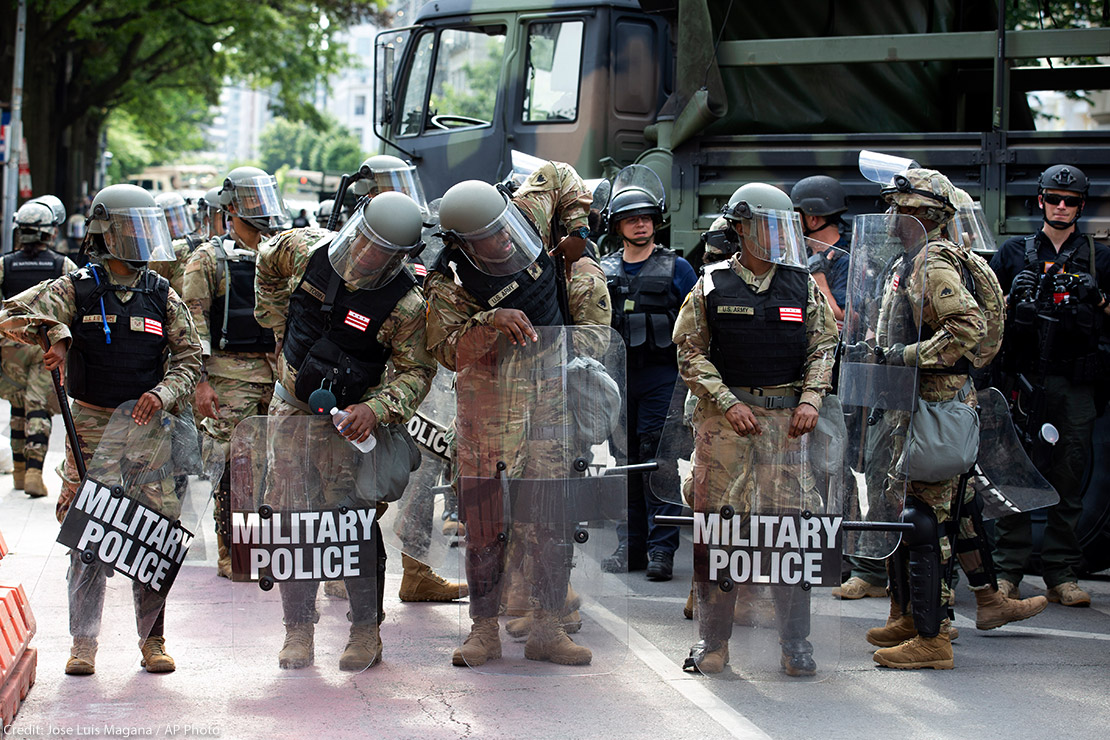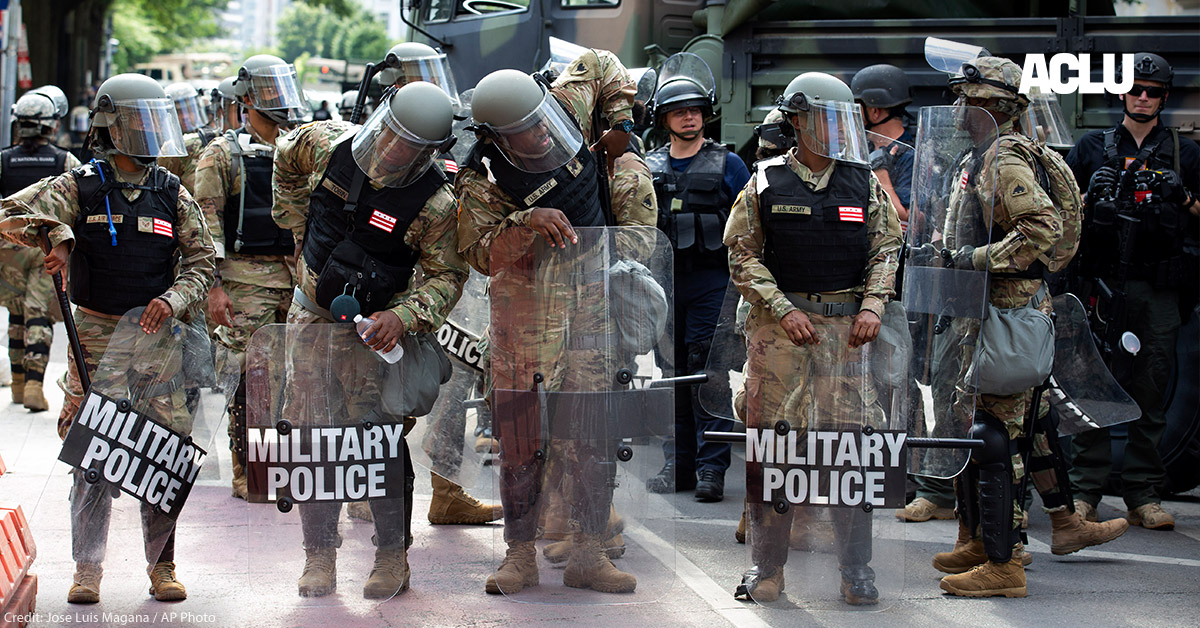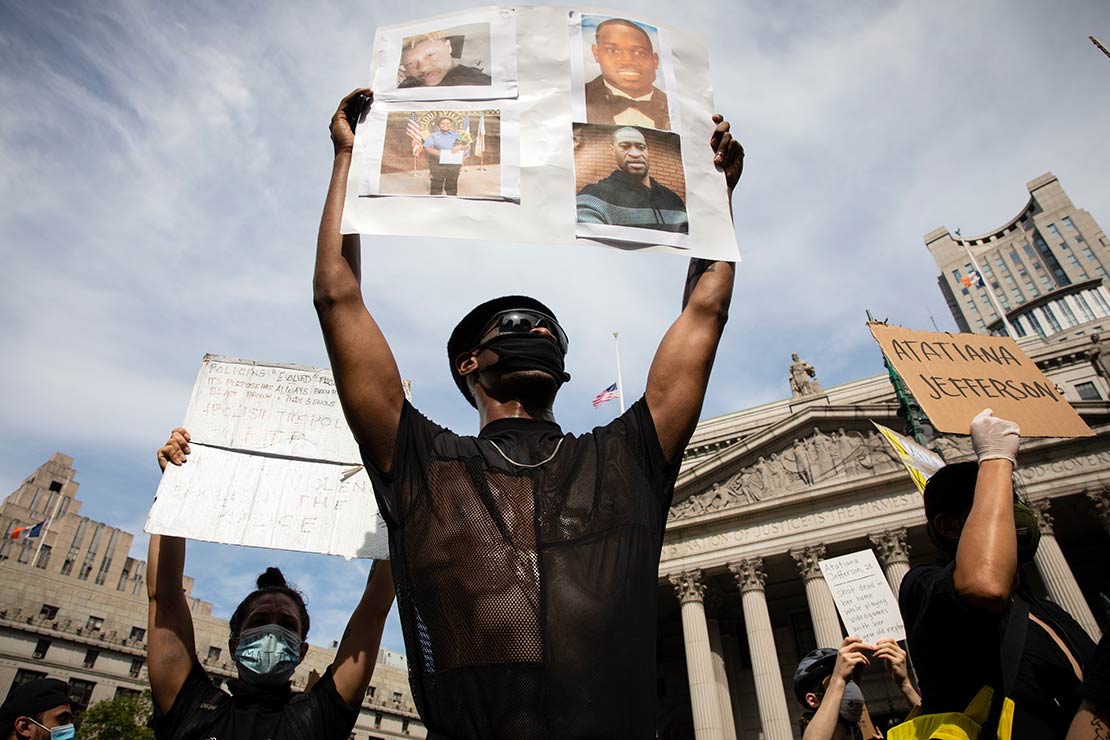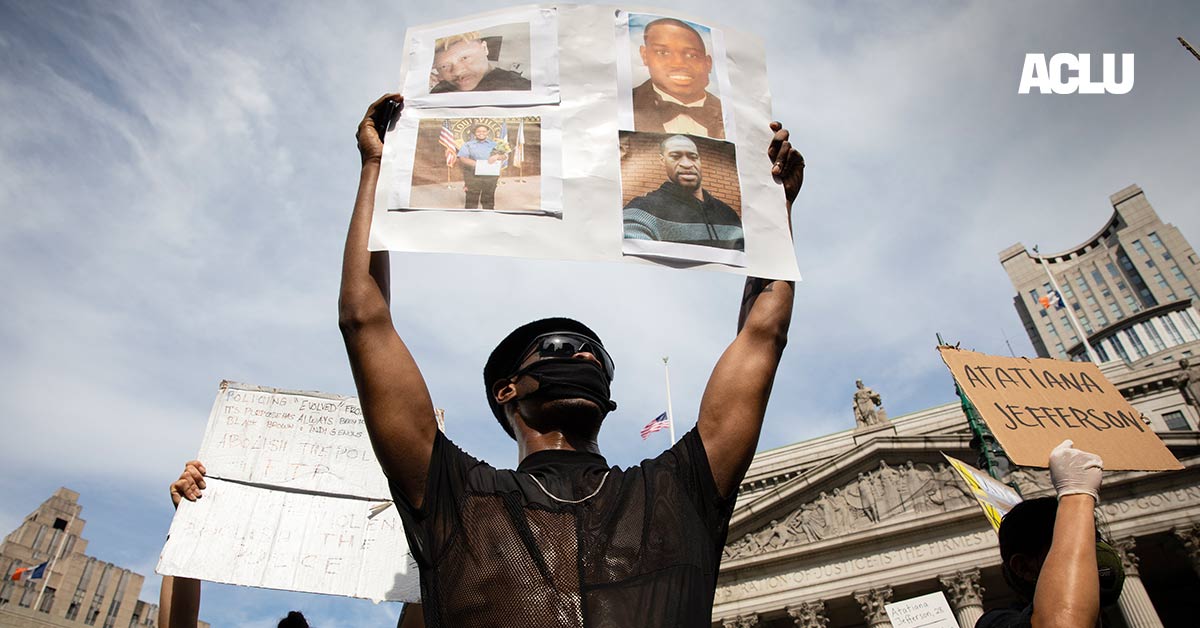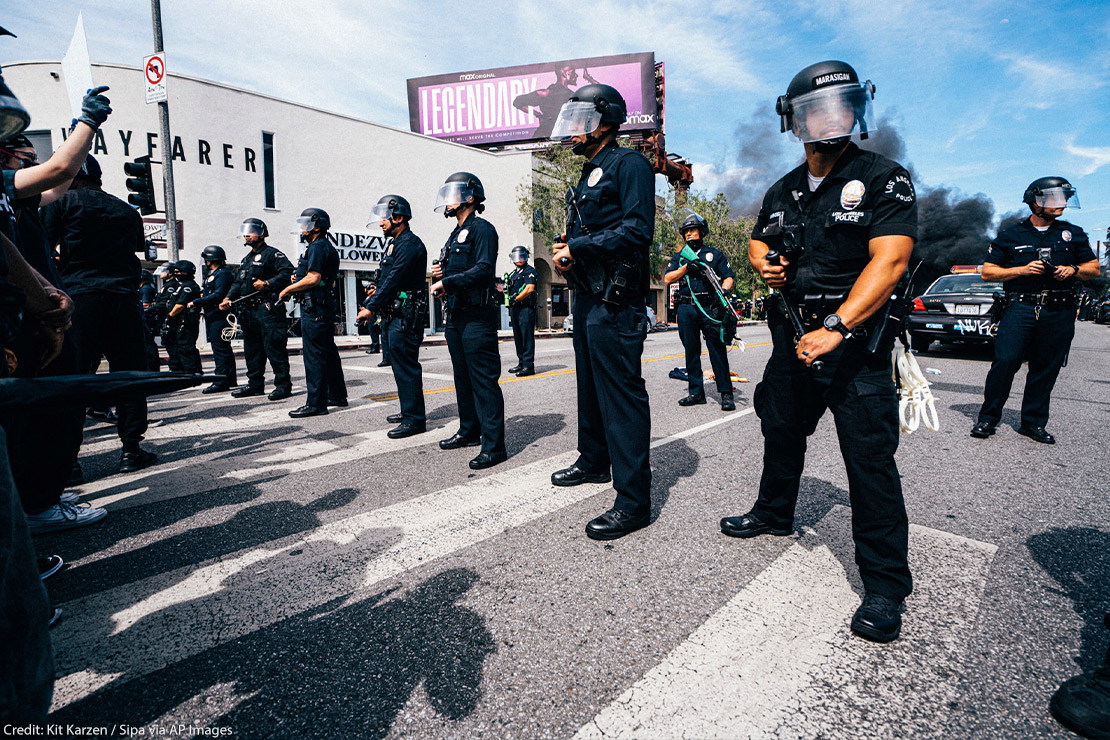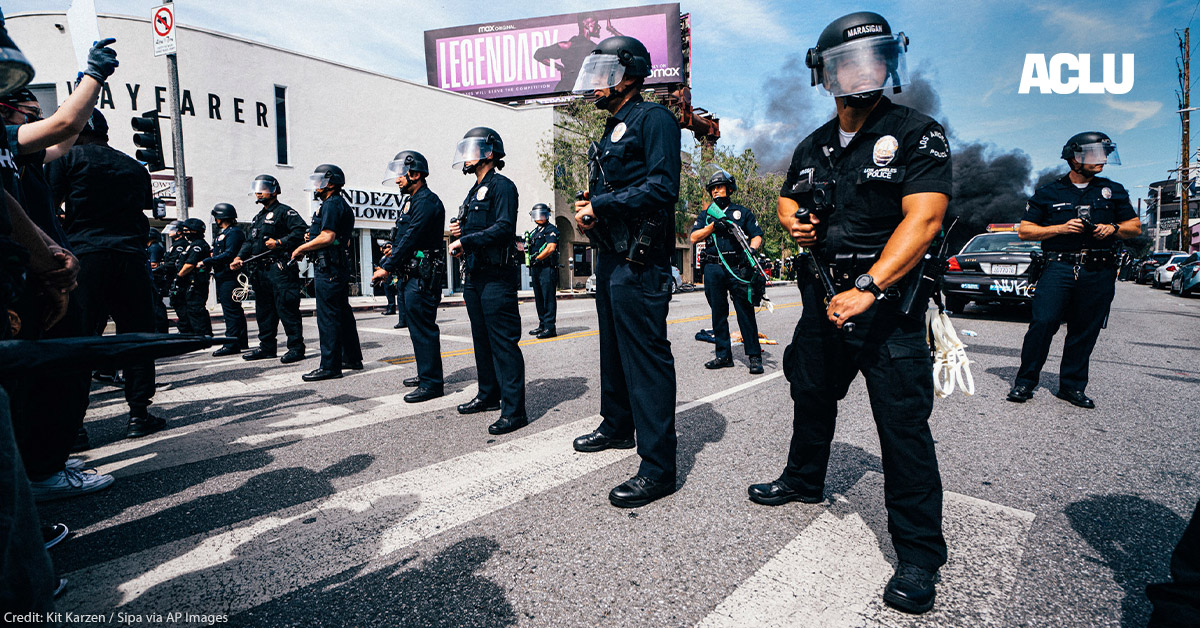Across the country, people are protesting police brutality and systemic racism. They are relentlessly demanding justice for George Floyd, Breonna Taylor, and the countless other Black people killed by police. In response, President Trump, supported by belligerent enablers in Congress and his administration, has threatened to deploy federal troops into states, and federal agencies are investigating protestors for domestic terrorism. These presidential threats and actions are authoritarian, irresponsible, dangerous, and wrong.
Trump’s threat to invoke the Insurrection Act of 1807 was extraordinary — over the last 50 years, presidents have rarely used this extreme authority, and rightly so. In this country, we have a strong norm against deploying the military on domestic soil, recognizing the threat it poses to liberty and individual civil rights. This norm is reflected in law — Congress passed the Posse Comitatus Act in 1878 to prohibit the use of federal military forces “to execute the law” unless the Constitution or Congress authorize it. That means the federal military can’t, for example, search, seize, arrest, apprehend, stop and frisk, surveil, pursue, interrogate, or investigate civilians.
But Congress also passed exceptions to the Posse Comitatus Act, the most expansive and potentially dangerous of which is the Insurrection Act of 1807. In the Insurrection Act, Congress gave presidents the authority to deploy active-duty federal troops and National Guard members under federal control — to suppress insurrection, acts of massive or widespread violence that “make it impracticable” to enforce federal law, or similar violence that obstructs federal law or the course of justice. Historically, presidents have invoked this authority to deploy troops at the request of a state, but also sometimes over a state’s objections — for example, to enforce civil rights protections and court-ordered desegregation. That is the opposite of what Trump would do.
Much as Trump loves the rhetoric of “war” and sees Black and Brown protest as a threat, the reality is that we are not at war in this country. Nor is it impracticable for civilian authorities to respond calmly and responsibly to unrest, especially when it is over their own abuses. Protestors are demanding that law enforcement end decades of unjust, unequal, and racist treatment of Black communities.
What Trump doesn’t seem to understand when he threatens to unleash “unlimited” military power domestically is that there are limits. Even if he were to wrongly and unnecessarily invoke the Insurrection Act, federal troops would still be subject to all of the safeguards and restrictions the Constitution imposes. Even so, the escalation would carry obvious dangers of excessive government surveillance and use of force, in violation of the Constitution. Civilian police, National Guard forces in D.C., and some National Guard forces in states are already engaging in serious abuses and violence.
An even more militarized response to civilian dissent would escalate the tension, fear, and pain we’re seeing and feeling across the country, especially in communities already traumatized by police violence. It would worsen the over-policing of Black lives — the very reason why people around the country are protesting.
Current and former military leaders are rightly warning against calling out more troops, and reminding troops of the fundamentals of the Constitution. Still, the fact that military leaders are being hailed as calming influences is a stark marker of how broken our politics, norms, and country are. It was not so long ago that military leaders had to reaffirm the prohibition against torture when it was systematically used against Brown and Black men abroad.
We have not come a long way, America. Perhaps policymakers will finally wake up to the harms of decades of rights-violating, war-based foreign policy — and its connections to militarized policing and racism at home. Every politician who is quick to laud Dr. Martin Luther King Jr. needs to remember his radical call to action against “the giant triplets of racism, extreme materialism, and militarism.” There is so much to fundamentally reform, and the people in the streets are demonstrating their urgent will for change. Yet much like during Dr. King’s time, federal agencies are viewing civil rights protests and protestors as domestic terrorists — enemies of the state.
Public attention has mostly focused on Trump blaming Antifa for violence and asserting that he would designate it as a domestic terrorist organization, even though he does not have that legal authority. That the same day, the FBI’s Washington Field Office reported it “has no intelligence indicating Antifa involvement/presence” in violence, and a later Department of Homeland Security intelligence assessment reportedly found the violence that has occurred is opportunistic.
Focusing on the threat against Antifa alone, though, misses the broader harms and consequences. Attorney General Barr this week enthusiastically announced that the Justice Department is using its broad and abusive domestic terrorism investigative powers in response to civil unrest.
Terrorism is an inherently political label, easily abused and misused. Communities of color already know this from 20 years of experience being targeted for discriminatory surveillance and investigation under the Patriot Act’s broad and vague definition of domestic terrorism. Black communities have long been in federal law enforcement’s cross-hairs: in 2017, the FBI concocted the label “black identity extremists,” opening the door to bias-based profiling of Black people and Black-led organizations who use their voices to demand racial justice. The agency appears to have conducted similar investigations of indigenous activists and protest. Civil rights leaders and groups have long demanded reform of national security and criminal authorities that discriminatorily suppress and punish Black and Brown people, and raise significant equal protection, due process, and First Amendment concerns. But Congress has stubbornly refused to act.
Now, Trump and Barr appear willing to bring the massive weight of the federal government’s expanded post-9/11 investigative powers and agencies down on new generations of racial justice and civil rights activists crying out for the right of Black people to live, and a more equal and just America.
These are some of the real threats we face right now — and reject.
Hina Shamsi, Director, ACLU National Security Project
Date
Thursday, June 4, 2020 - 6:45pmFeatured image
